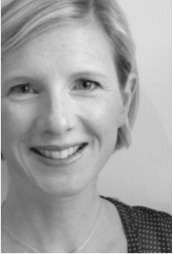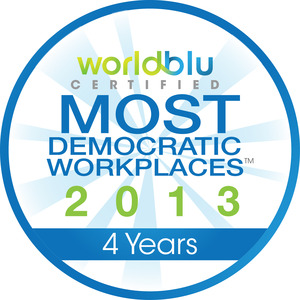Leadership in sustainabilty
For most of the last 10-20 years, the sustainable development agenda for business has been focused on the 'hard-wiring': energy and waste management systems, sustainability indicators reporting, lower emission vehicle fleets, sustainable supply chain policies, and so on. These efforts have have nudged corporate and public sector behemoths towards more environmentally and socially benign ways of delivering products and services, and earning revenue. But the experience of these last 10-20 years has also shown that these efforts, whilst all necessary, are also insufficient.
Huge leaps in innovation and investment are required to create a truly sustainable economy. Take Diageo North America's 80% reduction in CO2 emissions since 2008 – you read that correctly, 80% in just four years. The achievement is so stunning it beggars belief, especially when we're used to cheering companies that reduce their emissions by 10-12%. Whilst Diageo North America had to engineer a lot of 'hard-wiring' to do that, it took something in the 'soft-wiring' to even consider setting such a seemingly impossible target. It took leadership.
So what does it take to engineer the 'soft-wiring' of your organisation, so that it has the kind of leaders who can and will make those huge leaps in innovation and investment to create a truly sustainable business? There's a whole suite of deeply held values, technical and professional skills, and embodied behaviours, that together constitute 'leadership for sustainability'. In this newsletter, we offer a handful of insights from some of our consultants who have worked in and with a number of large corporations over the last 10-20 years on the practice and inquiry of leadership for sustainability.
|

FEATURE ARTICLE
Unleashing Human Potential
By Celine McKeown
At Future Considerations, we fundamentally believe in the power of human potential to unlock creativity and innovation in the field of sustainability. The ability to unlock the power of a meaningful workplace, by helping leaders' and their employees' find alignment between their personal purpose and the wider 'moral' purpose of the organisation is core to our definition of Leadership for Sustainability. Click here to read more...

MUST READS
Catalysing an evolutionary shift
By Laura Lewin
To create the conditions in which people change systems that are causing environmental damage and/or social inequity (or indeed, generate greater environmental and societal health) individuals need to know how to engage with the broadest and most complex set of systems dynamics possible. Unlike many immediate challenges in business and society, the most severe impact of climate chaos is dissociated from us both in time and, for those of us in the West, in location. This makes it especially difficult to influence people to act because they are faced with an undeniable rationale for moving away from 'business as usual'. So how can we change? Click here to read more...
An Experience of 'How to Sharpen the Sword'
By Martin Kalungu-Banda
What does it take to improve on something that has been dubbed 'wonderful', 'great' and 'amazing'? How can any organisation, in service of its stakeholders, keep pushing the frontiers of performance and excellence to higher and higher levels when one cannot even imagine what 'the better' would look like? These are some of the questions that were running through my mind as I was on the train from Oxford to Brighton (UK) where my colleagues and I were to spend the next four days "sharpening our sword" for our work in 2013. Click here to read more...
Interpreting the Quadruple Bottom Line
By Celine McKeown
Have you noticed that recently more and more people seem to be talking about the Quadruple Bottom Line (QBL)? Is it really something new? Does it really exist or is it 'another clever buzz-word from sustainability consultants'? What is this elusive fourth bottom line that we all seem to be referring to? There is no widely acknowledged general standard, as such, we would like to pose a number of opinions defining the fourth line in an effort to find clarity. Click here to read more...

MEET OUR TEAM
 Celine McKeown Celine McKeown
"I've always had a profound sense of needing to do meaningful work. Over the years, as life circumstances changed, I constantly considered what 'meaningful work' means for me. What previously gave me meaning, working on global, macro issues, now had to share the space with new, micro issues such as my family. My new life mix catalysed a profound change. I reconsidered success. Not just as an idea, or a financial measurement, but as a practice using 'Right Livelihood'. I define this as 'meaningful, self-sustaining work on behalf of people and planet'. I believe that if we all defined success in this way, then we stand a chance of creating a sustainable future for our children's children."
Have a question/comment? Email Celine here.
 Laura Lewin Laura Lewin
Having spend 15 year practicing as a business psychologist - helping clients improve the well-being of people, relationships and their bottom-lines - I found myself questioning the broader systems in which business operates. Learning more about how interconnected and interdependent our financial and eco-systems are, I reconsidered where I wanted to make a difference. Since that inflection point, I have focused on connecting leaders with the unintended consequences of our culture - helping them develop the capabilities to engage others in the real work of our age.
Have a question/comment? Email Laura here.
| | 
  

WHAT'S IMPORTANT?
Have you got a burining question that you would like to get an external opinion on? Is there a particular part of leadership development that you'd like to read more about?
Let us know about it and if we feel that we can contribute something of value, then we will respond with our thoughts!
Have a submission to the FC team? Email Pete here.

WHAT'S HAPPENING?
22-23 May
Pan-European HR Forum
Berlin, Germany
16-21 June
ALIA Summer Institute
Halifax, Canada
21 June
Brave HR: UnConference
London, UK
| |



Celine McKeown
Laura Lewin





Aucun commentaire:
Enregistrer un commentaire